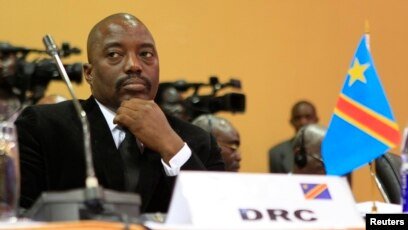Joseph Kabila, born on June 4, 1971, is a prominent political figure who played a significant role in shaping the Democratic Republic of Congo (DRC) over the past two decades. As the President of the DRC from 2001 to 2019, his leadership marked a crucial period in the nation’s history.
Early Life and Rise to Power
Joseph Kabila was born in Hewa Bora, a small village in the DRC. His father, Laurent-Désiré Kabila, was a revolutionary leader who led a rebellion against the dictatorship of Mobutu Sese Seko and eventually became the President of the DRC in 1997. Joseph Kabila’s entry into politics was inevitable, given his family’s involvement in the country’s tumultuous history.
In 2001, following the assassination of his father, Joseph Kabila assumed the presidency at the age of 29. His rise to power was met with a mix of hope and skepticism, as many wondered whether he could steer the DRC towards stability and democracy after years of conflict and turmoil.
Challenges and Achievements
Kabila’s presidency was marked by numerous challenges, including ongoing armed conflicts, political instability, and allegations of human rights abuses. His efforts to bring peace to the war-torn regions of the DRC, such as the signing of the Sun City Agreement in 2002 and the successful holding of the country’s first democratic elections in over 40 years in 2006, were notable achievements during his tenure.
However, his rule was also marred by criticism. Some accused him of consolidating power, suppressing political opposition, and failing to address deep-seated issues such as corruption and poverty. Despite these criticisms, Kabila managed to maintain a degree of stability in a nation plagued by complex ethnic and regional tensions.
Transition of Power
One of the most significant events during Kabila’s presidency was the peaceful transition of power. After serving two terms in office, he adhered to the country’s constitution, which prohibited him from seeking a third term. In 2019, Félix Tshisekedi was declared the winner of the presidential election, marking the first peaceful transfer of power in the DRC’s modern history.
Legacy and Impact
Joseph Kabila’s legacy is a complex one. While his presidency brought moments of progress and stability, it was also characterized by periods of unrest and uncertainty. His role in the DRC’s history is a subject of ongoing debate and scrutiny, as the nation continues to grapple with its complex challenges.
In his post-presidential life, Kabila remains influential in Congolese politics as the leader of the Common Front for Congo (FCC) coalition. His ability to shape the political landscape and influence the direction of the DRC’s future remains a topic of interest for observers both within and outside the country.
In conclusion, Joseph Kabila’s journey from a small village in the DRC to the presidency and his subsequent role in shaping the nation’s history is a story of both hope and challenges. His leadership, while marked by controversy, played a pivotal role in the recent history of the Democratic Republic of Congo.

